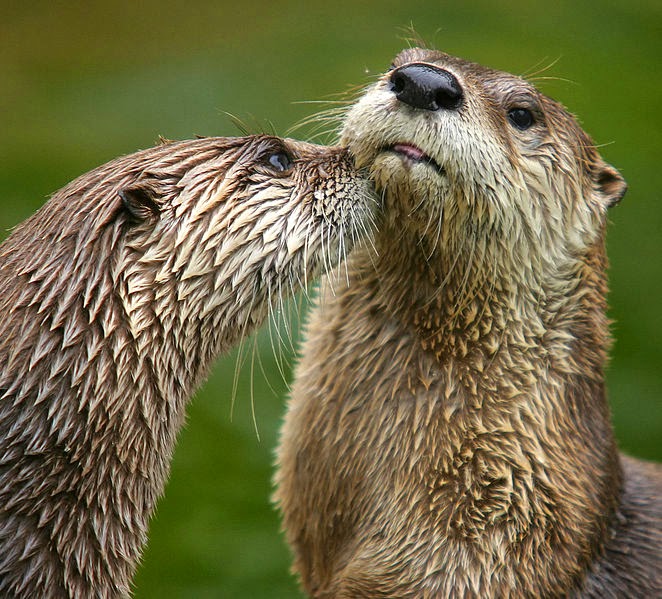But the news is sad, it has now been determined that the Malaysian flight 370 went down in the South Indian Ocean, Russia is arguing with the rest of America and Europe, and it's 25 years since the Exxon Valdez went aground and destroyed the Prince William Sound, killing "as many as 250,000 seabirds, at least 2,800 sea otters, approximately 12 river otters, 300 harbour seals, 247 Bald Eagles, and 22 orcas and an unknown number of salmon and herring." -http://en.wikipedia.org/wiki/Exxon_Valdez_oil_spill
And your heart takes that deep aching plunge into despair. What is to be done? Why is Obama fighting Putin when nothing has been done about Syria? The poor relatives of the passengers on the plane, hoping against hope that their people were still somehow safe and alive. I myself use oil so I am partially responsible for Exxon Valdez and BP and all the other constant "spills" of the world. Until I live in a house which is self-sufficient, like this one that Californian students have dreamed up, until I stop driving a car, until I stop using many products which use oil in their manufacture or in their journey to my door, I am as guilty as the next person. And so, sadness and helplessness.
Otters are the most wonderful creatures, full of life and play, similar to children. The name stems from the old English word "wodr", which also gave birth to the word, "water". This is very apt as otters are all semi-aquatic animals, the sea otter spending most of its life in the ocean.
 |
| River otters |
 |
| Sea otter. |
Otters enjoy themselves, playing just for the sake of it, like many other animals. They have been observed forming slides and then all taking turns to slide down into the water, doing it again and again, just like children. They also have a complicated social system, and live on average about 15 or 16 years.
I heard a story on the radio the other day where two women were interviewed as they had been volunteers in Cordova on Prince William Sound, after the Exxon Mobil spill in Alaska. They said that every day they had just gone home and cried, the work had been so hard and so long and so many animals had died. There was a long silence as they remembered. And then one of the women said, "But then, one day, about 3 months later, we took all these cages filled with cleaned and healthy otters down to the beach, and opened all the doors, and there was such a happy milling and mewling and frantic rush towards the ocean, and in they all piled and swam and played and were home! And that was a happy day, that day we cried tears of joy."
What wonderful women. What marvellous otters.
When I talked to Matthew in Senegal on Sunday he told me that the latest book he is reading is American Gods by Neil Gaiman, and it is now his favourite book. I have loved several of Gaiman's books but have never read that one. So I have put it on my list.
Matt mentioned that there is a wonderful part where he talks of dealing with these awful feelings of despair like an oyster deals with an aggravating piece of sand, "We draw our lines around these moments of pain, and remain upon our islands, and they cannot hurt us. They are covered with a smooth, safe, nacreous layer to let them slip, pearl-like, from our souls without real pain." Which is a lovely way of putting it, because we feel the hurt, we experience the full extent of the pain, whatever it is, and then we deal with it, by covering it up, even though it is still with us, it sits there not able to harm us anymore. (Psychologists need to teach people how to do this, don't they?)
And so I will concentrate on the good, like the good women who helped the otters, the fact that people invent rainbow-makers to delight us, and the radiant green leaves of my inside trees which will soon spread to the world outside, when spring flies in, on its little green wings.
No comments:
Post a Comment